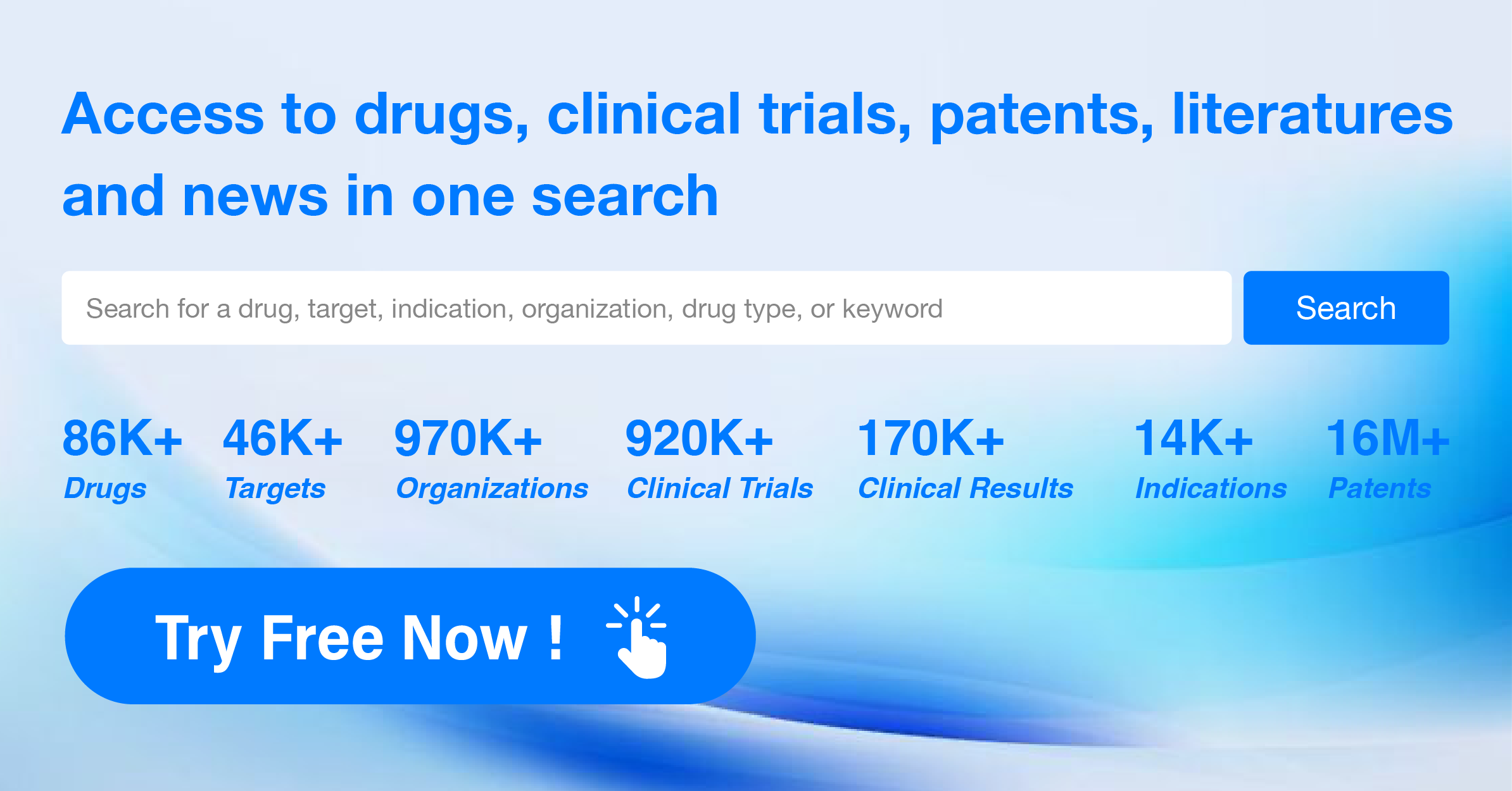Pharma Frontiers: Daily Digest of Global Pharmaceutical News - May 24
1.Chia Tai Tianqing's PD-L1 Monoclonal Antibody Shows Positive Results in Phase III Trial for First-line Treatment of Renal Cell Carcinoma (RCC)
On May 23, Chia Tai Tianqing announced that its novel Class 1 drug Benmelstobart (贝莫苏拜单抗) in combination with Anlotinib for the first-line treatment of advanced unresectable or metastatic renal cell carcinoma (RCC) has met the prespecified superiority threshold for the primary endpoint of progression-free survival (PFS), based on independent imaging review, in the Phase III ETER100 clinical trial. Additionally, the secondary endpoint of overall survival (OS) indicated a trend of benefit. Chia Tai Tianqing plans to submit a marketing application for this indication in the near future.
The ETER100 study (NCT04523272) is a pivotal Phase III randomized, open-label, positive-drug parallel-controlled, multicenter clinical trial. It aims to evaluate the efficacy and safety of Benmelstobart in combination with Anlotinib Dihydrochloride capsules compared to Sunitinib Malate capsules as a first-line treatment for advanced unresectable or metastatic RCC. The results indicate that the combination of Benmelstobart and Anlotinib significantly reduces the risk of disease progression or death in patients with advanced RCC, while also improving secondary endpoints such as objective response rate (ORR) and overall survival (OS). The safety profile of Benmelstobart was consistent with known risks, and no new safety signals were identified. Detailed data from this study will be presented at an upcoming international academic conference.
Benmelstobart is a novel humanized anti-PD-L1 monoclonal antibody independently developed by Chia Tai Tianqing. Anlotinib Dihydrochloride capsules are an innovative oral multi-target tyrosine kinase inhibitor (TKI) also independently developed by the company. In May 2024, the combination of Benmelstobart and Anlotinib capsules, along with chemotherapy, received market approval for the first-line treatment of extensive-stage small cell lung cancer. This RCC indication will be the third for Benmelstobart and the eighth for Anlotinib.
2.Henlius Biotech's Adalimumab Injection Biosimilar Approved for Four New Indications
On May 22, Henlius Biotech announced that the supplementary application for their Adalimumab injection had been approved by the National Medical Products Administration (NMPA) of China for four new indications: polyarticular juvenile idiopathic arthritis, pediatric plaque psoriasis, Crohn’s disease, and pediatric Crohn’s disease. Previously, this product had already been approved by the NMPA for the treatment of rheumatoid arthritis, ankylosing spondylitis, psoriasis, and uveitis.
It is estimated that approximately 7.6%-9.4% of the global population suffers from various types of autoimmune diseases. TNF-α (tumor necrosis factor-alpha) plays a crucial role in the pathogenesis of many autoimmune diseases. Current research has demonstrated that diseases such as rheumatoid arthritis, psoriasis, Crohn’s disease, and ankylosing spondylitis are closely related to TNF-α. Adalimumab is a fully human anti-TNF-α monoclonal antibody that can reduce the immune response activated by TNF-α through specific binding, thereby effectively reducing inflammation and providing long-lasting control of various autoimmune diseases.
In December 2020, Adalimumab was approved by the NMPA for the treatment of rheumatoid arthritis, ankylosing spondylitis, and psoriasis. In April 2021, Adalimumab was also approved for the treatment of non-infectious uveitis. According to Henlius Biotech's press release, the approval of these four new indications further expands the therapeutic areas of Adalimumab into the fields of gastroenterology and pediatrics.
3.Sanofi's Rilzabrutinib Achieves Success in Phase II Asthma Study, Plans to Initiate Phase III Trials
On May 22, Sanofi presented data from their Phase II study of Rilzabrutinib (SAR444671/PRN-1008) for the treatment of moderate to severe asthma at the American Thoracic Society (ATS) 2024 meeting. The company announced plans to initiate a Phase III trial to further verify its efficacy. Currently, no Bruton's tyrosine kinase (BTK) inhibitors have advanced to Phase III for the asthma indication.
The study was a 12-week randomized, double-blind, placebo-controlled proof-of-concept trial (n=64). It evaluated the efficacy, safety, and tolerability of Rilzabrutinib (800mg/1200mg) compared to placebo in patients with moderate to severe asthma who continued to exhibit symptoms despite receiving inhaled corticosteroids (ICS) and long-acting β2 adrenergic agonists (LABA). The primary endpoint was the proportion of patients experiencing loss of asthma control (LOAC) events.
Results indicated that by week 12, patients in both the high-dose and low-dose Rilzabrutinib groups had 36% and 25% fewer LOAC events, respectively, compared to the placebo group, and showed significant alleviation of asthma symptoms. Moreover, both high-dose and low-dose Rilzabrutinib were well tolerated, with no reported cases of decreased blood cell counts, bleeding, or atrial fibrillation, and liver function tests remained normal. However, a higher proportion of patients in the Rilzabrutinib groups experienced diarrhea, at 10.9% for the high-dose group and 9.4% for the low-dose group, compared to 0% and 3.1% in the corresponding placebo groups.
Rilzabrutinib is an oral, reversible, covalent BTK inhibitor developed by Principia Biopharma using its proprietary Tailored Covalency technology platform. In August 2020, Sanofi acquired Principia Biopharma for $3.68 billion, gaining access to several products, including this drug.
4.RemeGen's HER2-Targeting ADC Proposed for Breakthrough Therapy Designation
On May 22nd, the website of the Center for Drug Evaluation (CDE) under the China National Medical Products Administration (NMPA) announced that the injectable drug Disitamab Vedotin, developed by RemeGen, is proposed to be designated as a breakthrough therapy. The proposed indication is for the perioperative treatment of muscle-invasive bladder cancer (MIBC) that expresses HER2, in patients who are scheduled to undergo radical cystectomy, in combination with Toripalimab Injection. Disitamab Vedotin is an antibody-drug conjugate (ADC) targeting HER2, developed by RemeGen, and has already been approved for indications in gastric cancer and urothelial carcinoma. Currently, RemeGen is exploring the potential of Disitamab Vedotin in combination with PD-1 inhibitors and chemotherapy to treat various solid tumors. Toripalimab is a monoclonal antibody drug targeting PD-1.
Bladder cancer, arising from the bladder urothelium, is one of the most common malignancies of the urinary system. According to the staging standards of the International Union Against Cancer (UICC), bladder cancer can be categorized into non-muscle-invasive bladder cancer (NMIBC) and muscle-invasive bladder cancer (MIBC), with nearly 50% of MIBC patients experiencing recurrence or metastasis within two years post-surgery, leading to poor prognosis. Perioperative systemic treatment is crucial for improving the prognosis of MIBC patients.
As an anti-HER2 ADC product, Disitamab Vedotin has previously been designated as a breakthrough therapy for urothelial carcinoma by both the US FDA and the China NMPA. Clinical research results for the combination of Disitamab Vedotin and Toripalimab for urothelial carcinoma indications were previously presented at the 2023 American Society of Clinical Oncology (ASCO) Annual Meeting. This Phase 1/2 study included patients with locally advanced or metastatic urothelial carcinoma (la/mUC). The results demonstrated a confirmed objective response rate (cORR) of 73.2%, a complete response (CR) rate of 9.8%, with the ORR for treatment-naive patients being 76.0%, and a median duration of response (DOR) of 8.2 months, indicating favorable efficacy and safety.
5.Roche's Potential "First-in-Class" Antibody Approved for Clinical Trials in China to Treat Ulcerative Colitis
On May 22, the official website of the Center for Drug Evaluation (CDE) of the China National Medical Products Administration (NMPA) announced that the investigational new drug (IND) application for vixarelimab injection, a type 1 new drug developed by Genentech, a subsidiary of Roche, has been approved for clinical trials. The drug is intended for the treatment of ulcerative colitis. According to publicly available information, vixarelimab (RG6536) is a potential "first-in-class" fully human monoclonal antibody that blocks OSMRβ and is currently in Phase II clinical trials internationally.
Ulcerative colitis (UC) is a form of inflammatory bowel disease (IBD) characterized by chronic inflammation of the gastrointestinal tract. Symptoms may include diarrhea, abdominal pain, bloody stool, rectal bleeding, weight loss, and fatigue. UC severely impacts patients' quality of life, and there is an urgent need for safer and more effective treatment options.
Researchers have observed dysregulation of oncostatin M (OSM) and its receptor beta (OSMRβ) in various human diseases. This dysregulation may drive pathological processes such as fibrosis, inflammation, and pruritus in affected tissues. Existing research has identified OSM as a potential target for anti-pruritic therapies due to its role as a neuroregulator of itch. Vixarelimab is a selective, fully human monoclonal antibody targeting OSMRβ, capable of blocking OSM and IL-31 signaling while preserving LIFR pathway signaling.
Previously, a Phase IIa clinical trial for vixarelimab in treating nodular prurigo met its primary endpoint and received Breakthrough Therapy designation from the U.S. FDA for the treatment of pruritus associated with nodular prurigo. In August 2022, Kiniksa Pharmaceuticals entered into a collaboration with Roche and Genentech, granting the latter global rights for the development and commercialization of vixarelimab. Kiniksa received an upfront payment and near-term milestone payments totaling $100 million.
6.Zai Lab Initiates Phase 3 Clinical Trial for Potential Breakthrough Therapy for Alzheimer's Disease in China
Recently, the Chinese Clinical Trial Register (ChiCTR) and the Drug Clinical Trial Information Platform publicized that Karuna Therapeutics, along with other entities, has initiated an international multicenter (including China) Phase 3 clinical study to evaluate KarXT for the treatment of neuropsychiatric symptoms related to Alzheimer’s Disease. Zai Lab holds the rights to develop, manufacture, and commercialize KarXT in Greater China, which includes Mainland China, Hong Kong, Macau, and Taiwan. The New Drug Application (NDA) for KarXT for the treatment of adult schizophrenia has been accepted by the U.S. FDA, with the Prescription Drug User Fee Act (PDUFA) target action date set for September 26, 2024. KarXT (xanomeline-trospium) is an oral M1/M4 muscarinic acetylcholine receptor agonist developed by Karuna Therapeutics, representing an innovative mechanism of action for treating psychiatric and neurological disorders. According to The Lancet, if approved by the FDA, KarXT will become the first antipsychotic that does not directly antagonize dopamine receptors. Mechanistically, KarXT consists of two active components: xanomeline and trospium chloride. Xanomeline alleviates negative symptoms like apathy, social withdrawal, and cognitive impairments by stimulating muscarinic receptors M1 and M4, and it also helps to mitigate other psychiatric symptoms such as hallucinations and delusions. Trospium chloride, a muscarinic receptor antagonist, minimizes xanomeline's peripheral side effects by blocking its impact on peripheral neurons. KarXT aims to activate muscarinic acetylcholine receptors in the brain while reducing peripheral receptor activity. In November 2021, Zai Lab and Karuna Therapeutics entered into an exclusive licensing agreement for the development, production, and commercialization of KarXT in Greater China.
7.Rezolute's Innovative Small Molecule Therapy RZ402 Achieves Primary Endpoint in Clinical Trial
Recently, Rezolute announced positive results from its Phase 2 trial of the investigative small molecule RZ402 for the treatment of diabetic macular edema (DME) in patients who have either not received or have had limited exposure to anti-vascular endothelial growth factor (anti-VEGF) injections. The analysis indicated that the trial met its primary endpoint, with RZ402 reducing the central subfield thickness (CST) of the retina in patients. According to the press release, this is the first time an oral therapy has been shown in a clinical trial to reduce macular edema, supporting the potential of this therapy for early intervention in the disease. The disclosed trial was a multi-center, randomized, double-blind, placebo-controlled, parallel group study aimed at evaluating the safety, efficacy, and pharmacokinetics of RZ402 as a monotherapy over a 12-week (three-month) treatment period, enrolling a total of 94 patients. The analysis showed that RZ402 met both primary endpoints of improving macular edema and being safe. Compared to the placebo, all dosage levels of RZ402 resulted in a significant improvement in CST (up to approximately 50 microns; p=0.02), with a continued downward trend in CST observed throughout the study and at the end of treatment. In terms of treatment effect, there were no significant differences between the different RZ402 dosage levels, but patients who received the 200 mg dose showed the strongest response. The majority of patients receiving the 200 mg dose of RZ402 experienced a reduction in CST, with over 20% of subjects achieving clinically meaningful improvements from baseline in CST, whereas no patients in the placebo group achieved clinically meaningful improvements, and the deterioration rate was high. RZ402 was found to be safe and well-tolerated, with adverse events generally being mild and occurring at a rate comparable to the placebo group. RZ402 is an oral, selective, and potent small molecule plasma kallikrein inhibitor (PKI) designed for the chronic treatment of diabetic macular edema. By inhibiting the activation of kallikrein, RZ402 aims to prevent the production of bradykinin and its effects on vascular leakage and inflammation.
8.Expansion of Collaboration to Develop Potential "First-in-Class" Therapies for Cancer and Cardio-Renal-Metabolic Diseases by Boehringer Ingelheim
On May 23, OSE Immunotherapeutics and Boehringer Ingelheim announced the expansion of their collaboration. In addition to the existing immuno-oncology project targeting SIRPα, two new research projects aiming to develop potential "first-in-class" therapies for cancer and cardio-renal-metabolic diseases were added. The two companies initially entered into a partnership in 2018 to co-develop the SIRPα antagonist BI 765063 (also known as OSE-172). By binding to SIRPα, BI 765063 can block CD47 signaling, potentially enhancing anti-tumor immunity by improving T cell activity.
The expanded collaboration will widen the scope of research on the anti-SIRPα compounds BI 765063 and BI 770371, targeting not only advanced solid tumors but also cardio-renal-metabolic diseases. Additionally, a new preclinical project will be initiated to develop immune cell-activating therapies based on OSE's proprietary BiCKI platform. The BiCKI platform can generate bifunctional molecules by conjugating PD-1 targeting antibodies with cytokines or other immune cell-activating modulators, which simultaneously inhibit immune checkpoint proteins and further activate effector T cells' anti-cancer activity.
According to this expanded agreement, OSE Immunotherapeutics will receive €13.5 million in upfront payments and €17.5 million in potential short-term milestone payments. OSE Immunotherapeutics is a biotechnology company dedicated to developing "first-in-class" therapies in the fields of immuno-oncology (IO) and immuno-inflammation (I&I), with a rich pipeline of assets. Its most advanced product is the cancer vaccine Tedopi.
9.Takeda and Degron Therapeutics Collaborate to Develop Molecular Glue Degraders
On May 23, Degron Therapeutics announced that it has entered into a collaborative development and exclusive licensing agreement with Takeda Pharmaceutical Company. The objective of this partnership is to discover and develop novel molecular glue degraders targeting multiple indications in the fields of oncology, neuroscience, and inflammation. Under the terms of the agreement, Degron Therapeutics will receive an upfront payment and is eligible for future potential milestone payments related to preclinical, clinical development, and commercialization, totaling up to $1.2 billion. Additionally, Degron Therapeutics is entitled to royalties on sales of any potential commercialized products. The collaboration also provides an option for both parties to expand the partnership to include additional targets. Furthermore, Takeda will make an equity investment in Degron Therapeutics.
Degron Therapeutics retains full ownership of its proprietary pipeline. Utilizing its GlueXplorer® platform, Degron Therapeutics will discover, validate, and optimize molecular glue degraders for specific disease targets selected by Takeda. Upon reaching certain progress milestones, these projects will be transferred to Takeda for further development and commercialization. Founded in 2021, Degron Therapeutics boasts a molecular glue library comprising over 60 novel differentiated structural frameworks and more than 10,000 compounds. The pipeline developed through this platform includes targets previously considered undruggable, showing significant potential for treating a variety of diseases.




